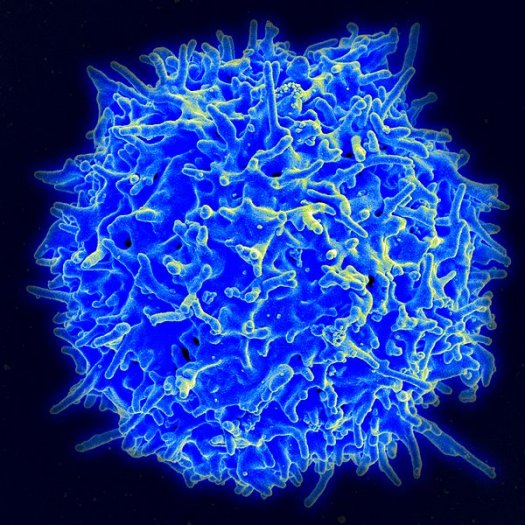It looks like you're using an Ad Blocker.
Please white-list or disable AboveTopSecret.com in your ad-blocking tool.
Thank you.
Some features of ATS will be disabled while you continue to use an ad-blocker.
5
share:
Your immune system may be precognitive, or maybe not. I don't know if I would phrase it quite the same way the article does; but what the heck, I
will take all the help I can get for my immune system.
SOURCE
SOURCE
Immune cells are like the Hatfields and McCoys of our bodies--once wronged, they never, ever forget. This is how we gain immunity, and it’s why vaccines work: Immune cells develop a memory of an invading pathogen, and they build an alert system to find and fight it should it ever return. But a new study by Stanford researchers adds a new wrinkle to this long-held immune theory. It turns out immune cells can develop this memory-like state even for pathogens they’ve never met. This may come from exposure to harmless microbes -- or the memories may actually be borrowed from other, more experienced cells.
Decades ago, Davis discovered that CD4 cells reshuffle their DNA when they divide, which basically creates an army of T cells that have very specific pathogen-recognizing abilities. According to this new paper, this ability might also help them recognize pathogens they haven't even seen yet.
Yum, Mud: There may be an evolutionary reason why kids are inclined to eat dirt.
So maybe drop that Purell habit and don’t worry about the billions of bugs, most of which aren’t harmful, that surround us all the time. They might be giving our immune systems a head start.
reply to post by happykat39
thats how I heard they invented the first vaccine, by using cow pox a disease that has symptoms like small pox but only affects cows, they found that when given to a human they would gain immunity to small pox
thats how I heard they invented the first vaccine, by using cow pox a disease that has symptoms like small pox but only affects cows, they found that when given to a human they would gain immunity to small pox
Originally posted by grey9438
reply to post by happykat39
thats how I heard they invented the first vaccine, by using cow pox a disease that has symptoms like small pox but only affects cows, they found that when given to a human they would gain immunity to small pox
That's right, and the reason they even knew to try it was because milk maids who came down with cow pox, which is a very mild disease, never got small pox.
reply to post by happykat39
Good catch. ...Also turns out that vaccines only fight the specific strain they're designed to fight - but getting infected with a real flu makes you immune to a whole lot more. All very interesting.
Good catch. ...Also turns out that vaccines only fight the specific strain they're designed to fight - but getting infected with a real flu makes you immune to a whole lot more. All very interesting.
Our bodies are much smarter than we are..
it tells us what we need when we need it.. just have to learn to listen.
it tells us what we need when we need it.. just have to learn to listen.
Originally posted by soficrow
reply to post by happykat39
Good catch. ...Also turns out that vaccines only fight the specific strain they're designed to fight - but getting infected with a real flu makes you immune to a whole lot more. All very interesting.
Yep, and thats why i will never get a flu shot. Hell i havent had the flu for about 31/2 to 4 yrs now.
new topics
-
The daily fail trying to imply “it’s aliens”
The Gray Area: 4 hours ago -
Swarms of tiny 'ant-like' robots lift heavy objects and navigate obstacles
Science & Technology: 6 hours ago -
NYPD Chief Jeffrey Maddrey Resigns - Forced Officers to Give Sex for Overtime Pay and Favors.
Posse Comitatus: 7 hours ago -
The Carpet Coating that Attacked the Environment
Medical Issues & Conspiracies: 11 hours ago
top topics
-
The Carpet Coating that Attacked the Environment
Medical Issues & Conspiracies: 11 hours ago, 12 flags -
Microplastics in your drinks
Medical Issues & Conspiracies: 12 hours ago, 5 flags -
Happy Rush Day 2024 - 2112
Music: 17 hours ago, 4 flags -
NYPD Chief Jeffrey Maddrey Resigns - Forced Officers to Give Sex for Overtime Pay and Favors.
Posse Comitatus: 7 hours ago, 3 flags -
Swarms of tiny 'ant-like' robots lift heavy objects and navigate obstacles
Science & Technology: 6 hours ago, 2 flags -
The daily fail trying to imply “it’s aliens”
The Gray Area: 4 hours ago, 1 flags
5


